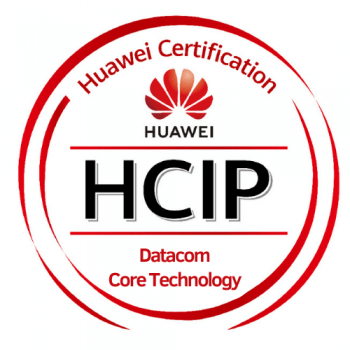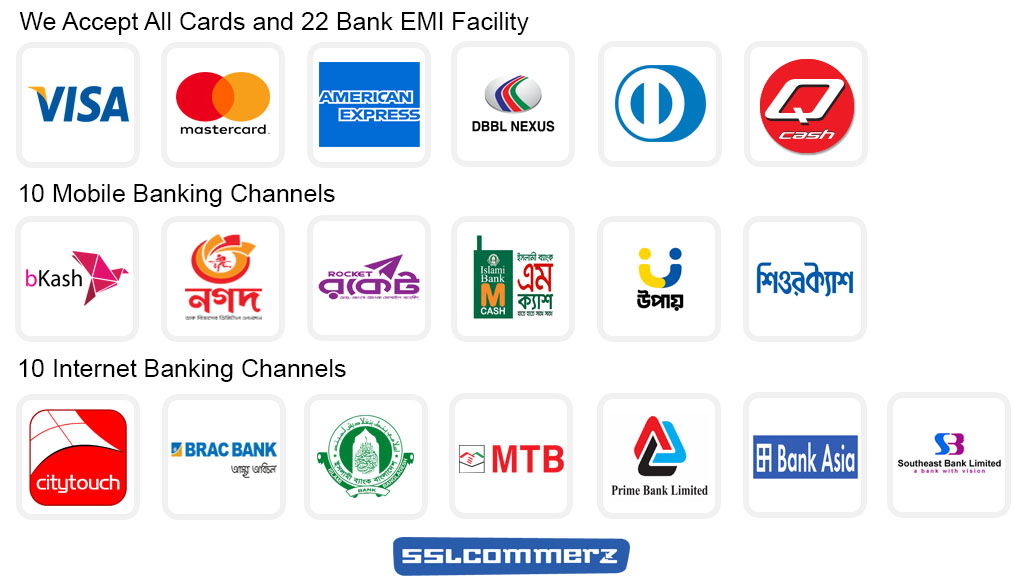HCIP-Datacom-Core Technology

CSL Training provides HCIP training in Dhaka. These courses cover the skills needed to implement Huawei Enterprise networks. They cover the fundamentals for dual stack (IPv4 and IPv6) architecture as well as virtualization, infrastructure, network assurance, security, and automation. By the end of this path, you’ll be confident in your abilities to implement Huawei Enterprise networks.
Course Objectives – HCIP-Datacom-Core Technology
- IP Routing Basics Introduction to Network Devices: Hardware modules of modular switches, three planes of network devices, Packet processing on network devices. IP Routing Basics: RIB and FIB, Route import scenario.
- OSPF Core Knowledge OSPF Basics: Introduction to dynamic routing protocols, Basic OSPF concepts, Process of establishing an OSPF neighbor relationship, Basic OSPF configuration OSPF Route Calculation: Intra-area route calculation, Inter-area route calculation, External route calculation OSPF Special Area and Other Features: Stub area and totally stub area, NSSA area and totally NSSA area, Inter-area route summarization and external route summarization, OSPF Features
- IS-IS Core Knowledge IS-IS Principles and Configuration: Basic concepts of IS-IS, IS-IS working principle, Basic IS-IS configuration
- BGP Core Knowledge BGP Basics: BGP overview, Basic concepts of BGP, Basic BGP configuration BGP Path Attributes and RRs BGP route selection BGP EVPN Basics: MP-BGP, EVPN overview, Common EVPN routes, Typical EVPN application scenarios
- Routing and Traffic Control Routing Policy and Route Control: Route matching tool, Routing policy tool, Route control cases Traffic Filtering and Forwarding Path Control: Policy-based routing, MQC, Traffic filtering
- Switching Core Knowledge RSTP Principles and Configuration: RSTP overview, Improvements of RSTP over STP, RSTP working process, Basic RSTP configurations MSTP Principles and Configuration: MSTP overview, Basic concepts of MSTP, Working principles of MSTP, Basic MSTP configuration Stack and CSS: Overview of Stack and CSS technologies, Stacking principles, CSS principles, Basic configuration
- Multicast Basics IP Multicast Basics: Basic concepts of IP multicast, Multicast data forwarding principle IGMP Principles and Configuration: IGMP working principle, Introduction to the IGMP feature PIM Principles and Configuration: PIM basics, PIM-DM, PM-SM
- IPv6 Core Knowledge IPv6 Overview: IPv6 overview, Introduction to IPv6 addresses ICMPv6 and NDP: ICMPv6 overview, NDP overview, Router discovery, Duplicate address detection, Redirection IPv6 address configuration: IPv6 address configuration mode, Stateless IPv6 address auto configuration, DHCPv6, Implementation of IPv6 address auto configuration
- Network Security Basics Huawei Firewall Technology: Firewall overview, Basic concepts of firewalls, Basic firewall configuration Network Device Security Features: Security hardening policies for common devices, Network device security hardening deployment example VPN Technology Overview: VPN technology overview, Common VPN technologies Basic Concepts and Applications of VRF
- Network Reliability BFD Principles and Configuration: BFD Overview, BFD working principle, BFD application scenarios, Basic BFD configurations VRRP Principles and Configuration:VRRP overview, VRRP working principles, Typical VRRP application, Basic VRRP configuration
- Network Service and Management DHCP Principles and Configuration: DHCP background, DHCP working principle and configuration, DHCP Relay working principle and configuration Introduction to Network Management Protocols: Development of network management, Functional features of network management, Network management protocols, Application scenarios of network management
- Large-scale WLAN Architecture Large-Scale WLAN Networking and Deployment: Overview of large scale WLAN networking, VLAN pool, DHCP technology, Roaming technology, High reliability technology, Network Admission Control technology
- Network Solution Enterprise Datacom Solution Overview: Campus, Data center, SDN-WAN, SD-WAN
Target Audience
- System Engineers
- Network Consultants
- System Integrators
Course Pre-requisite
- Basic Computer Knowledge.
- Architecture
- Virtualization
- Infrastructure
- Network Assurance
- Security
- Automation
Course Summary
Course Fee
৳ 12,000
Training Method
Offline/Online
Total Modules
13
Course Duration
36 Hours
Total Session
12
Class Duration
3 Hours

Details Course Outlines
Module-01
IP Routing Basics
- Introduction to Network Devices
- Hardware modules of modular switches
- Three planes of network devices
- Packet processing on network devices
- IP Routing Basics
- RIB and FIB
- Route import scenario
Module-02
OSPF Core Knowledge
- OSPF Basics
- Introduction to dynamic routing protocols
- Basic OSPF concepts
- Process of establishing an OSPF neighbor relationship
- Basic OSPF configuration
- OSPF Route Calculation
- Intra-area route calculation
- Inter-area route calculation
- External route calculation
- OSPF Special Area and Other Features
- Stub area and totally stub area
- NSSA area and totally NSSA area
- Inter-area route summarization and external route summarization
- OSPF Features
Module-03
IS-IS Core Knowledge
- IS-IS Principles and Configuration
- Basic concepts of IS-IS
- IS-IS working principle
- Basic IS-IS configuration
Module-04
BGP Core Knowledge
- BGP Basics
- BGP overview
- Basic concepts of BGP
- Basic BGP configuration
- BGP Path Attributes and RRs
- BGP route selection
- BGP EVPN Basics
- MP-BGP
- EVPN overview
- Common EVPN routes
- Typical EVPN application scenarios
Module-05
Routing and Traffic Control
- Routing Policy and Route Control
- Route matching tool
- Routing policy tool
- Route control cases
- Traffic Filtering and Forwarding Path Control
- Policy-based routing
- MQC
- Traffic filtering
Module-06
Switching Core Knowledge
- RSTP Principles and Configuration
- RSTP overview
- Improvements of RSTP over STP
- RSTP working process
- Basic RSTP configurations
- MSTP Principles and Configuration
- MSTP overview
- Basic concepts of MSTP
- Working principles of MSTP
- Basic MSTP configuration
- Stack and CSS
- Overview of Stack and CSS technologies
- Stacking principles
- CSS principles
- Basic configuration
Module-07
Multicast Basics
- IP Multicast Basics
- Basic concepts of IP multicast
- Multicast data forwarding principle
- IGMP Principles and Configuration
- IGMP working principle
- Introduction to the IGMP feature
- PIM Principles and Configuration
- PIM basics
- PIM-DM
- PM-SM
Module-08
IPv6 Core Knowledge
- IPv6 Overview
- IPv6 overview
- Introduction to IPv6 addresses
- ICMPv6 and NDP
- ICMPv6 overview
- NDP overview
- Router discovery
- Duplicate address detection
- Redirection
- IPv6 address configuration
- IPv6 address configuration mode
- Stateless IPv6 address autoconfiguration
- DHCPv6
- Implementation of IPv6 address autoconfiguration
Module-09
Network Security Basics
- Huawei Firewall Technology
- Firewall overview
- Basic concepts of firewalls
- Basic firewall configuration
- Network Device Security Features
- Security hardening policies for common devices
- Network device security hardening deployment example
- Basic Concepts and Applications of VRF
- VPN technology overview
- Common VPN technologies
- Basic Concepts and Applications of VRF
Module-10
Network Reliability
- BFD Principles and Configuration
- BFD Overview
- BFD working principle
- BFD application scenarios
- Basic BFD configurations
- VRRP Principles and Configuration
- VRRP overview
- VRRP working principles
- Typical VRRP application
- Basic VRRP configuration
Module-11
Network Service and Management
- DHCP Principles and Configuration
- DHCP background
- DHCP working principle and configuration
- DHCP Relay working principle and configuration
- Introduction to Network Management Protocols
- Development of network management
- Functional features of network management
- Network management protocols
- Application scenarios of network management
Module-12
Large-scale WLAN Architecture
- Large-Scale WLAN Networking and Deployment
- Overview of large-scale WLAN networking
- VLAN pool
- DHCP technology
- Roaming technology
- High reliability technology
- Network Admission Control technology
Module-13
Network Solution
- Enterprise Datacom Solution Overview
- Campus
- Data center
- SDN-WAN
- SD-WAN
